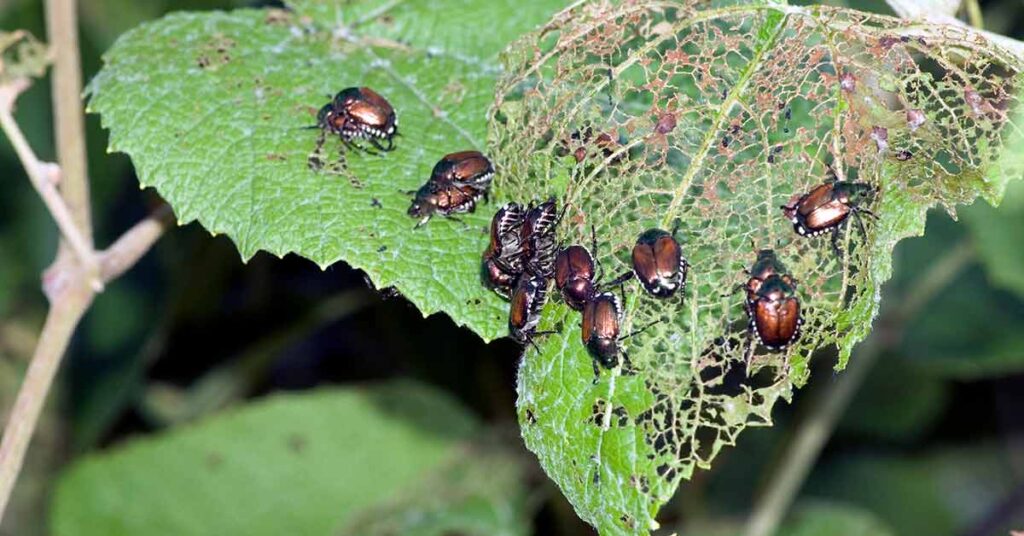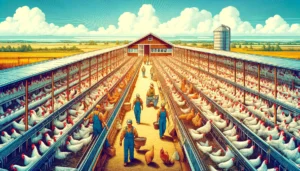
integrated pest management.jpg

Integrated Pest Management (IPM)
Integrated Pest Management (IPM) is a holistic approach to pest management that emphasizes the integration of multiple control tactics to prevent and suppress pest populations while minimizing reliance on chemical pesticides. IPM strategies incorporate ecological principles, cultural practices, biological controls, and targeted pesticide applications to promote sustainable pest control and reduce environmental impacts.
Key Components of IPM:
- Pest Identification and Monitoring:
- Accurate identification and monitoring of pest species and populations are fundamental to IPM. Regular scouting, trapping, and surveillance help assess pest abundance, distribution, and behavior, guiding pest management decisions.
- Cultural Practices:
- Cultural practices modify the crop environment to make it less favorable for pests or more conducive to natural enemies. Techniques such as crop rotation, planting date adjustment, and sanitation reduce pest pressure and enhance crop resilience.
- Biological Control:
- Biological control utilizes natural enemies, including predators, parasitoids, and pathogens, to regulate pest populations. Conservation of beneficial insects, augmentation with commercially available natural enemies, and habitat manipulation support biological control in agroecosystems.
- Mechanical and Physical Controls:
- Mechanical and physical controls physically exclude, trap, or disrupt pest populations. Examples include row covers, mulching, barriers, and trapping devices that target specific pests or prevent pest access to crops.
- Chemical Controls:
- Pesticides are used judiciously as a last resort in IPM when other control measures are insufficient. Selective pesticides with low toxicity to non-target organisms are preferred, and application timing and methods are optimized to minimize environmental impacts.
Benefits of IPM:
- Reduced Pesticide Dependency:
- By integrating diverse pest management tactics, IPM reduces the need for frequent pesticide applications, minimizing pesticide residues in the environment and potential risks to human health.
- Enhanced Biological Control:
- IPM practices support populations of natural enemies, promoting biological control of pests and reducing reliance on chemical pesticides. Conservation of beneficial insects contributes to long-term pest suppression and ecosystem resilience.
- Sustainable Pest Management:
- IPM fosters sustainable pest management by balancing economic, environmental, and social considerations. By optimizing pest control tactics, IPM improves crop yields, reduces production costs, and conserves natural resources.
- Resilient Agroecosystems:
- Integrated pest management enhances agroecosystem resilience by promoting biodiversity, minimizing disturbances, and fostering ecological balance. Healthy ecosystems are better able to withstand pest outbreaks and adapt to changing environmental conditions.
Challenges and Considerations:
- Knowledge and Training:
- Successful implementation of IPM requires training and education for farmers, extension agents, and agricultural professionals to understand pest ecology, monitoring techniques, and effective control strategies.
- Resource Limitations:
- Limited access to information, technical support, and financial resources may hinder adoption of IPM practices, particularly in smallholder and resource-limited farming systems.
- Behavioral Barriers:
- Cultural, social, and economic factors influence farmer attitudes and behaviors towards pest management. Overcoming resistance to change and promoting IPM adoption may require addressing socio-economic incentives and cultural norms.
Conclusion: Integrated Pest Management (IPM) offers a sustainable and ecologically sound approach to pest management that balances the need for effective pest control with environmental protection and human health considerations. By integrating diverse pest management tactics and promoting ecological resilience, IPM enhances agricultural sustainability and resilience in the face of pest challenges.
Fall off the barn roof and busted your keister? Life on the farm or ranch can be tough on the bum. Need a break? Laugh it off at FarmerCowboy.com, the #1 farm humor site. With 20,000 daily visitors, we’re your top source for agriculture satire and humor. Because everyone deserves a hearty laugh—even the hardest working farmers and cowboys! Join us and turn those long days into fun tales at FarmerCowboy.com.
Originally posted 2015-08-18 04:52:04.
Originally posted 2024-07-03 16:37:13.
Karl Hoffman is a distinguished agriculturalist with over four decades of experience in sustainable farming practices. He holds a Ph.D. in Agronomy from Cornell University and has made significant contributions as a professor at Iowa State University. Hoffman’s groundbreaking research on integrated pest management and soil health has revolutionized modern agriculture. As a respected farm journalist, his column “Field Notes with Karl Hoffman” and his blog “The Modern Farmer” provide insightful, practical advice to a global audience. Hoffman’s work with the USDA and the United Nations FAO has enhanced food security worldwide. His awards include the USDA’s Distinguished Service Award and the World Food Prize, reflecting his profound impact on agriculture and sustainability.




